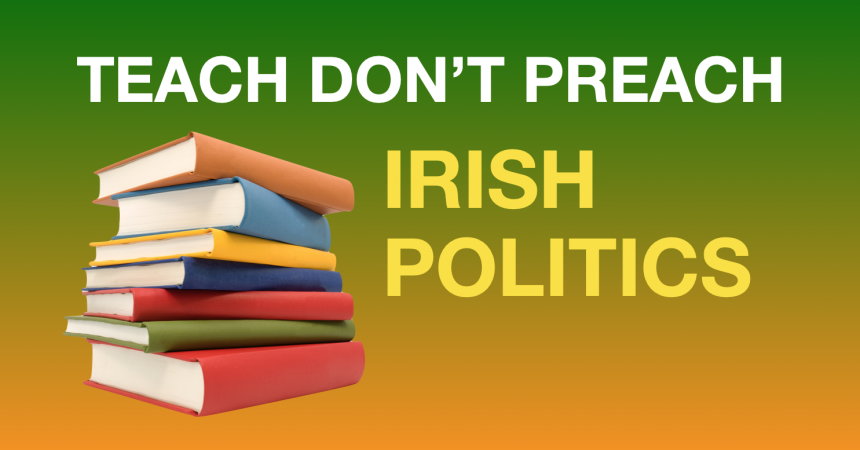
Second review of Dail debate on Education (Amendment) Bill 2010
This is a review by our Lobbying Officer Conor McGrath of some of the key features of this resumed debate from the perspective of Atheist Ireland, so that we can then go on to think about what sort of briefing we might want to provide at the Committee Stage.
On 10 and 11 November the Dail resumed debating the Education (Amendment) Bill 2010. This was a second stage debate, after the first stage which was the introduction of the Bill in September. You can read the debate transcripts on the Oireachtas website:
This section of the debate wasn’t hugely lengthy, and most of the speakers concentrated on other aspects of the Bill. This part of the debate is still not over, as the Minister didn’t reply to the debate and the Dail hasn’t yet voted to pass the Bill, so it will be back on the Dail schedule at some point before moving on to Committee Stage. These are the points most relevant to the concerns that we have raised:
Brian Hayes TD said: “Deputy Quinn has alluded to a fundamental issue in respect of which action is required and which is not dealt with in an adequate manner in the Bill. I refer to the provision of denominational religious tuition within the framework of the new community national schools. The Constitution is absolutely clear in respect of this matter. Article 42.2 states: “Parents shall be free to provide this education in their homes or in private schools or in schools recognised or established by the State.” There was never a difficulty in providing State schools in Ireland because from 1937 onwards there has been a clear recognition that they can be provided. This matter was further highlighted in the Education Act 1998. So there has never been a problem with regard to this fundamental question of a pure State school.
“As previous speakers stated, the problem arises with regard to how it might be possible to provide religious denominational tuition within the confines of the daily routine of a State school. It is one thing to say that State schools provide the full curriculum – including multi-faith options, which are a fundamental part of the entire religious curriculum – on a daily basis from 9 a.m. to 2.30 p.m or 3 p.m. However, it is legally dubious to suggest that denominational instruction should be provided during the course of the school day. Such instruction can be provided after school, either in local churches or people’s homes. Has consideration been given to whether it can be provided in the new schools that are to be established?
“I am not convinced that the Bill is constitutional in that regard. In the various test cases that have been taken in the context of employment and other legislation, the Supreme Court has found that the Constitution fundamentally respects the right of religious schools to exist. It has also found that the Constitution respects the right of the authorities at such schools to select, based on their enrolment policies, both the children who will attend them and, based on religious criteria or whatever, the teachers who will provide instruction in them. Furthermore, the Supreme Court has always held that these schools have a right to exist and that the Constitution upholds that right. However, it is entirely different to suggest that a State primary school has the right to provide, within the course of the school day, religious tuition by denominational groups. I am of the view that the Bill could falter on that point and I would be interested in hearing the Tánaiste’s opinion when she replies to the debate.”
Frank Fahey TD stated: “Another point I want to make relates to the multi-belief programme, which has been working under the title, “Goodness me, Goodness you”, and is designed to cater for children of all beliefs and none, with content appropriate for both their theist and non-theist perspectives – maybe somebody would explain to me what that means. In keeping with the commitment to provide belief-specific teaching in accordance with the wishes of parents, the programme also provides for belief-specific modules to be delivered for children whose parents take that option. That is an excellent provision, which has been researched for some time and which, I understand, has been very successful. The most important and fundamental point here is that, as that statement says, we can have children in our schools with all beliefs and none, they can be catered for whatever their religion and they can integrate, and that the teaching of religion to different religious groups within the school is a seamless exercise. The existing patronage, under the Catholic church, has worked well in that respect. The new patronage, under the VECs, is welcome. No doubt the patronage of Educate Together has been outstanding.”
Mary Upton TD called for a national forum on primary school patronage, and for greater provision of nondenominational education. Michael D’Arcy TD raised a different concern: “The Bill before us will allow VECs to become patrons at primary level, which is to be welcomed as a step in the right direction. Equally, however, we need to be careful because, while VECs have been providing secondary education for decades, they do not have expertise in primary education. We must provide them with the expertise and knowledge they need to ensure a smooth transfer of patronage.”







0 Comments
No comments!
There are no comments yet, but you can be first to comment this article.